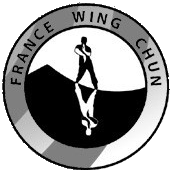Wing Chun Chi Sao, let go control to gain mastering
It is often said that knowing how to control/orientate its opponent’s movements is a guarantee of superiority in the fight and even more in Chi Sao, but this idea most of the time turns back against the one who applies it, because each manipulation is hazardous if opponent’s defeat is the only aim.
Chi Sao is a game and one of its rules is to be able to control the opponent, cause unwanted spontaneous responses that will allow turning the fight in our favor.
Controlling all moves in the exchange will block any retreat option, controlling hands will avoid strong and fast attacks, controlling the body mass will help to destabilize. In one word, this control game will weaken structure and all opponent’s potentials.
To play this control’s game, we apply pressures on the opponent’s arms to give him information he will interpret, what will trigger reflex moves adapted to this pressure. Of course as we are at the origin of the information, this is as if we anticipated the opponent’s reactions and exploit them at its expenses.
But you have to admit that quite often when you start trying this game, the more you try influencing in a way, the more you get the opposite response to what you were anticipating.
What you have to understand is that to control the opponent, we trigger a whole pack of physiological mechanisms that will act to deliver the order information aiming at influencing the opponent. But as everything begins by ourself, these mechanisms will first close or narrow down options and our adaptability in the exchange.
If the mind is focused on the idea of influencing the opponent in a given way, all its ressources are dedicated to this question. It is therefore less able to properly interpret all other information (opportunities, dangers) arriving in the timeframe.
This will result in movements slowing down, in poorly distributed or dosed information, and loss of synchronism in a given moment that may be used by the opponent.
You then have to let go on the aim of controlling and learn to deeply listen to information delivery mechanisms in yourself, so that your body keeps distributing information with an equivalent upstream and downstream bandwidth.
How to do that:
You have to let go the « willing to defeat » and focus all your effort in listening to your sensations, be able to recognize what is for you a strong, moderate or light push. Did you ever practice with a partner who told you that you were a little bit too hard when you felt like being relax. I hear you from here, for sure the opponent might be quick tempered, but what if you were capable of lowering your potentiometer and make him feel like your practice is light and flexible, wouldn’t that be beneficial in your mastering of control? Because given its own feelings, your opponent should be less tense and in this way you should be able to catch him by surprise.
It is also a good thing to make the exchange last, not trying to end it as quickly as possible with a deadly technique, but make it last so that Chi Sao becomes the driving range of each idea, each technique and each control you would like to apply.
Becoming better also comes from periods when you accept to be less performant, but this doesn’t mean you are losing, because taking this time when victory is not what you are seeking is also taking a time to analyze yourself, modify your way of practice by improving pressures dosing and techniques and then become the master of what you are doing.







